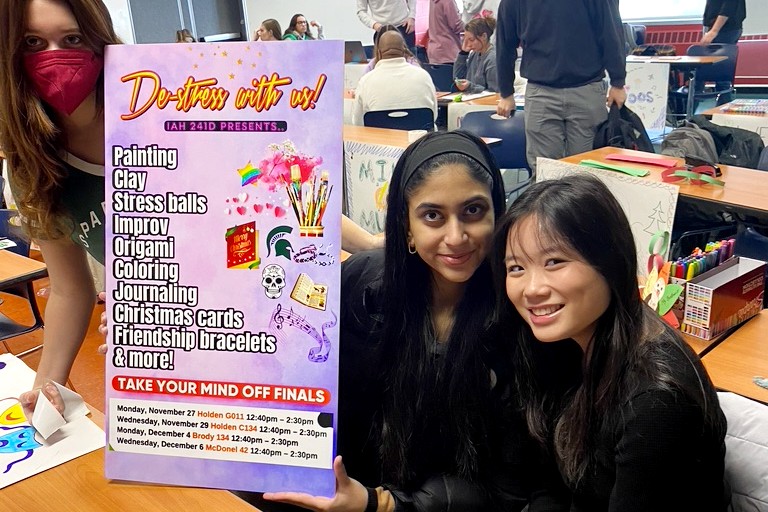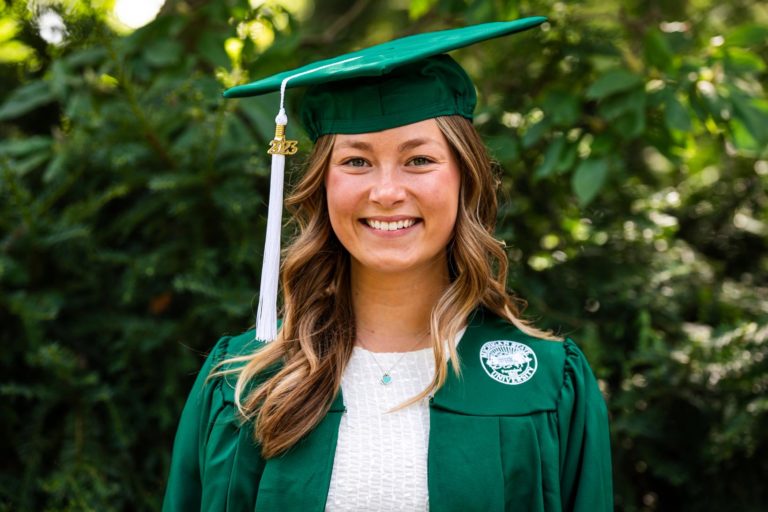Natalie Harmon (she/her) is a junior majoring in Comparative Cultures and Politics in James Madison College and Spanish with a minor in Portuguese in the College of Arts & Letters. She is a student clerical assistant at MSU’s Institute for Public Policy and Social Research. In her free time, she enjoys learning languages and doing calligraphy.
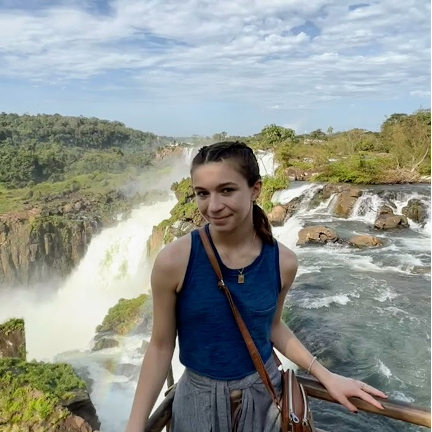
Since I started learning Spanish during the sixth grade, I have always wanted to travel to immerse myself in a Spanish-speaking environment. As I grew older, it seemed that almost every Spanish student that studies abroad ends up in Spain. While it has always seemed like a beautiful country — and one I would still love to travel to — I couldn’t help but want to have a non-Western European experience.
As pandemic travel restrictions became more relaxed, I began looking into study abroad programs that would work well for me as a Comparative Cultures and Politics major as well as a Spanish minor. I started hearing about the internship abroad opportunities in Madrid, Paris, and Buenos Aires through James Madison. The Buenos Aires program immediately caught my attention as I would be able to improve my Spanish skills and complete my Field Experience requirement.
Before I started my internship with Mujer y Gobierno, or Women and Government, a nongovernmental organization dedicated to researching gender-based socio-political issues and advocating for policy solutions in Argentina and Latin America, I spent two weeks at Vos, an immersive Spanish school in the Palermo neighborhood. At Vos, I met other students from around the world who were learning to become more proficient in their Spanish-speaking skills. Outside of class, Vos often held events to help international students experience and learn about Argentinian culture.
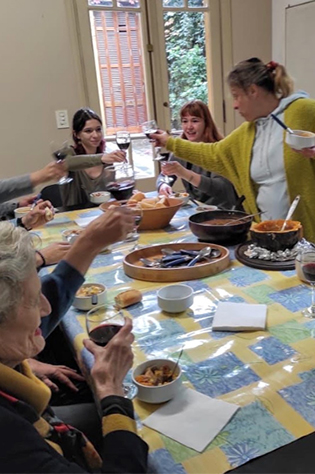
One of my favorite events I attended was a celebration of the May Revolution where the school staff taught us how to make locro, which is the national dish of Argentina. Locro is a thick squash stew made with many vegetables and sometimes meat. Before I came to Argentina, I had never heard of the dish but once I tried it, I loved it. Making locro together and enjoying it over a celebration of the May Revolution was a great way to get to know other students at the school and learn about this Argentinian tradition.
Once my Spanish classes concluded, I began my internship where I researched the effects of the pandemic on public employees in Buenos Aires and in what ways gender was a contributing factor.
The data indicated a disproportionately high number of male employees received a raise, while their female counterparts did not. This internship was an eye-opening experience as I was able to investigate how gender-based inequalities persist in another culture. My research provided ways to appreciate both differences and similarities in the ways various countries responded to the pandemic, particularly between Argentina and the United States.
During my free time, I explored the city and other parts of the country. Connect 123, the program that placed me in my internship, often held events and outings for their internship participants. One of these outings included a guided tour of the famous Colón Theater with information about the construction of the theater and the amazing acoustics.
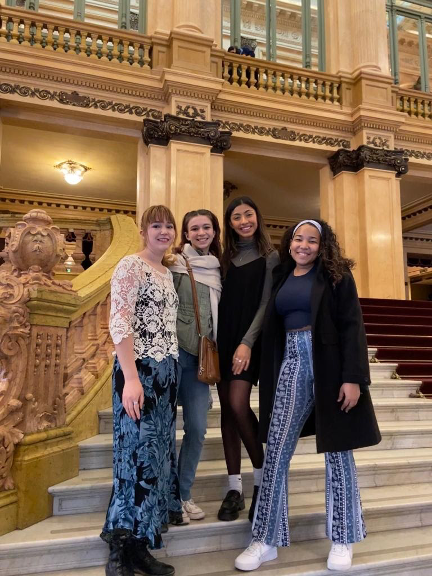
Another one of my outings included a weekend trip to Iguazú Falls located on the border of Argentina and Brazil. With a group of girls I met through Connect 123, I spent two days on the Argentinian side of the falls and one day on the Brazilian side. Walking through the parks on both sides of the border, I saw an array of interesting plants and wildlife. This trip also gave me the opportunity to practice speaking Portuguese, which I especially appreciated because I had few opportunities to do so outside of class. This weekend trip was ultimately one of my favorite things I did in Argentina because of how enriching it was for my language skills and the amazing scenery.
Towards the end of my time in Argentina, I began to realize just how much I was going to miss speaking Spanish every day. Over the course of the 10 weeks of my program, my interest in speaking and learning languages became much stronger. Getting the opportunity to travel to a place where I could speak the language I had been working to learn for so many years was incredibly rewarding. I realized that I wanted to incorporate my Spanish skills into my future career. This led me to make the decision to change my minor in Spanish to a major. Now that I have made this change, I am excited to be able to take more Spanish classes and hopefully use the language skills I have accumulated in my future career.
Leaving Argentina was bittersweet. While I was saddened to leave the many friends I made and the excitement of a big city, I was excited to return home with my improved language skills and new perspectives. What I have learned from this experience will stay with me forever. I am looking forward to using the knowledge I gained about issues affecting women in Argentina and my increased language fluency in my academics, both in James Madison and my Spanish classes.
(Article originally published by James Madison College.)
